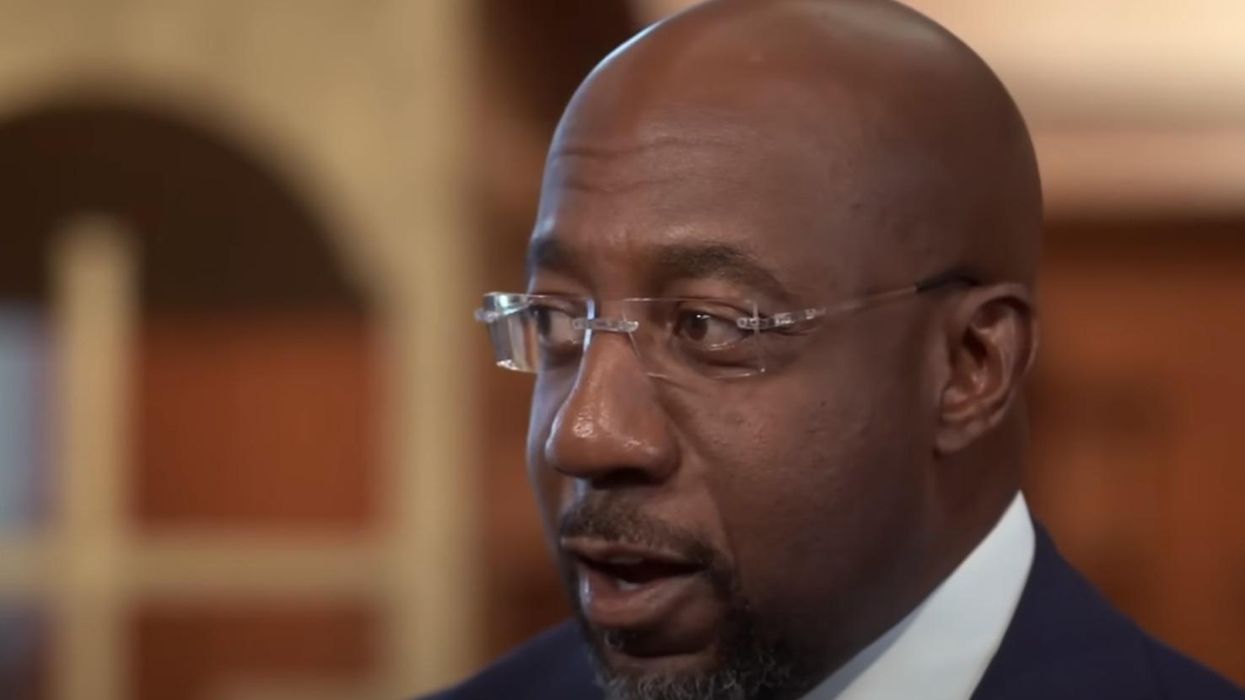Warnock's Re-Election Is Also A Victory For Social Security
Social Security was on the ballot in Georgia’s December 6 run-off election. Senator Reverend Raphael Warnock’s re-election is a win for working families. It is a victory for Gold Star families, paralyzed veterans, seniors, and indeed all of Social Security’s over 65 million current beneficiaries and all future beneficiaries.
It is a loss for Republican politicians and their Wall Street donors who are determined to reach into our pockets and steal our hard earned benefits. If Herschel Walker had won, he would have rubber stamped the Republican agenda to cut Social Security’s modest but vital benefits.
Walker proudly campaigned with and took money from Senator Rick Scott (R-FL), the author of a plan that would put Social Security on the chopping block every five years. If Walker had been elected, he would have been a rubber stamp for Senator Ron Johnson (R-WI), whose plan would put Social Security on the chopping block every single year.
What cuts do Republicans have in mind? The Republican Study Committee, a group that counts about 75 percent of House Republicans as members, released a detailed plan to cut Social Security in multiple ways: Raising the retirement age to 70 (a 21 percent benefit cut), slashing middle class benefits, and handing billions of dollars of Social Security’s revenue over to Wall Street and private insurance corporations.
Republican politicians in Washington have been clear about how they plan to force those cuts into law—and Walker would have been a rubber stamp for that plan. Republican House Leader Kevin McCarthy has announced the Republican plan to take hostage the must-pass debt limit next summer. The ransom to be paid in exchange for their votes? Cuts to our earned Social Security benefits.
Nor is McCarthy only speaking for House Republicans. Senator John Thune (R-SD), number two Senate Republican leader, has echoed McCarthy’s plan to hold the debt limit hostage to Social Security cuts.
It is important to recognize that, as a self-funded program that has no borrowing authority and can only pay benefits if it has sufficient revenue to cover every penny of the cost, Social Security does not add even a penny to the federal debt. It is not contributing a penny to the debt whose limit must be raised to avoid a default by the United States on its obligations. Nevertheless, Republicans in Congress want to cut our earned benefits so badly, they’re willing to risk an economic catastrophe to make it happen.
Fortunately, Senator Warnock won, giving the Democrats a clear majority in the Senate. President Biden and the Democrats he leads have made it clear that they are committed to expanding Social Security, with no cuts, while requiring the wealthiest to begin to pay their fair share. And Senator Warnock himself understands how important our Social Security system is.
He recognizes that Social Security embodies the best of American and religious values—values that Senator Warnock has lived by his entire life. Among those values are that it is our birthright as human beings to have dignity, freedom and independence; that hard work should be rewarded; that we have responsibilities and concern for ourselves, our families, and our neighbors; and that we are all connected, sharing the same risks and benefits.
Social Security is as reliable as it is essential. Through pandemics, wars, and economic recessions, Social Security has always continued to reliably pay monthly benefits, allowing its beneficiaries and their families to pay rent, buy food, and fill life-saving prescriptions.
Senator Warnock understands that Americans of all political backgrounds rely on our earned Social Security benefits, and supports protecting and expanding them. He knows how important Social Security benefits are for the people of Georgia, both now and in the future.
In his two years in the Senate, Warnock has been a champion for seniors. As a member of the Senate Aging Committee, he led the successful fight to cap the cost of insulin for seniors. He was part of the winning vote to finally allow Medicare to negotiate with Big Pharma to lower drug prices.
Now, Georgia voters have re-elected Senator Warnock. Warnock and his Democratic colleagues have a mandate to protect Social Security’s earned benefits. Fortunately, President Biden and Demcrats in Congress have made clear that not only do they oppose cuts, they will not negotiate over debt limit legislation with the Republican terrorists who plan to kidnap it.
To avoid a dangerous and potentially calamitous game of chicken when a default is imminent, Democrats should thwart the kidnappers by raising or eliminating the debt ceiling before the end of this year. That will foil the Republican hostage-taking plans, a plan to force highly unpopular and unwise social cuts that voters in Georgia—and across America—resoundingly rejected in this year’s midterm elections.
Nancy J. Altman is a writing fellow for Economy for All, a project of the Independent Media Institute. She is the author of The Truth About Social Security and The Battle for Social Security and co-author of Social Security Works! and the forthcoming Social Security Works for Everyone!
This article was produced by Economy for All, a project of the Independent Media Institute.















